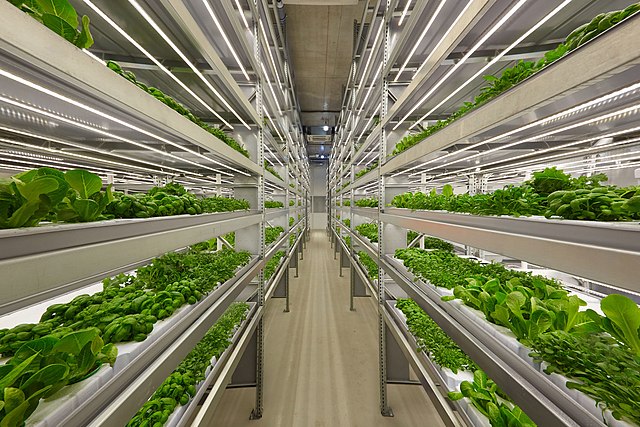A farm in the United Arab Emirates (UAE) has reaped abundantly from carbon credit sales. This has happened just a few weeks after an all-out strive to phase out carbon emissions at the COP28 summit in Dubai.
The “David & Goliath” farm sold 5 million Euro (AED 20.413 million) worth of carbon credits on top of agricultural produce sales.
Carbon credits define permits that a climate-friendly country gives greenhouse producers to emit a certain limit of gas. Most companies receive a limit of 1 ton per credit. If a farm buys many credits but emits only a few, it can sell the surplus to similar-minded farms.
For “David and Goliath” farm, the annual permit of 15,000 tons is enough to generate EUR 750,000 (AED 3.059 million) per year.
The carbon credit equivalent to a ton was trading at EUR 50 (AED 203.91) in 2023. For a company that has been farming for 7 years, purchasing at this flat rate has insured earnings. It has also brought environmental benefits via low emissions.
Vertical Farming
The ability to foster environmental benefits while earning drives the uptake in vertical farming in the UAE.
According to Dr. Lal Bhatia, an investor with “David & Goliath” farm, the project owes to UAE’s conducive policy on sustainability. The policy has seen a rise in urban agriculture, automated irrigated fields and vertical farms.
Through such projects, the UAE joins the likes of China in embracing vertical farms. This is why it conducts technology research and taps into field exchanges with Israel.
The intent of vertical farming differs from one country to the next. While China’s builds multi-storey vertical farms for self-sufficiency, UAE’s vertical farms target carbon reduction and rare indigenous crops.
For instance, “David and Goliath” farm focuses on the production of exotic but rare fruits through sustainable means.
This commitment cuts across the Arab nation. For one, it was an UAE farming company that suggested trade in carbon credits post-COP28 in Mid-December, 2023. Earlier in September, the UAE Carbon Alliance pledged to purchase $450 million in carbon credits from Africa by 2030. The promise commits to the COP27 premise of transparent and voluntary carbon deals to battle global warming.
